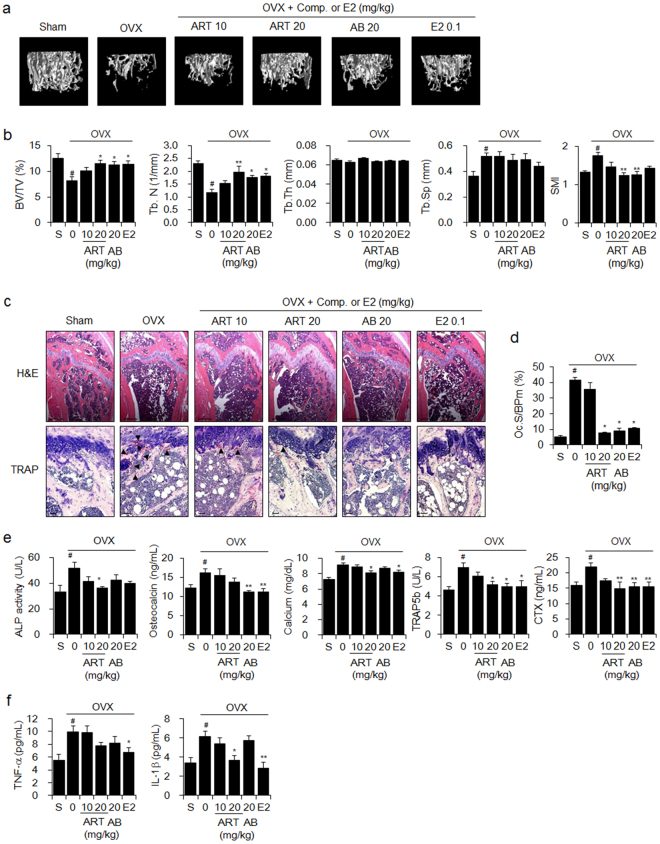Figure 2.
Artemisinin and arteannuin B reduce OVX-induced bone loss in mice. Eight-week-old female OVX mice (N = 10) were administered vehicle (PBS containing 1% DMSO and 1% Tween-20), 10 or 20 mg/kg BW of artemisinin (ART), 20 mg/kg BW of arteannuin B (AB) or 0.1 mg/kg BW of E2 by oral gavage 5 times per week for 12 weeks. Sham-operated mice (N = 10) received the vehicle alone. (a) 3D images of the trabecular bones in the distal femora of mice were obtained using μCT at 12 weeks as described in the Methods section. (b) Bone morphometric parameters of the mouse femora, including BV/TV, Tb.N, Tb.Th, Tb.Sp, and SMI, were measured using μCT. (c) H&E and TRAP staining were performed in the sectioned femoral tissues. Arrowhead: TRAP-positive osteoclast. Scale bar: 0.396 mm for H&E staining and 10 μm for TRAP staining. (d) Osteoclast surface per bone perimeter (Oc.S/BPm) values were calculated from TRAP-stained femoral sections. (e) Serum levels of bone turnover markers and (f) the pro-inflammatory cytokines TNF-α and IL-1β were quantified using their respective assay kits as described in the Methods section. The data are expressed as the mean ± SE. # P < 0.01 versus sham-operated mice (S), * P < 0.05, ** P < 0.01 versus OVX mice.

